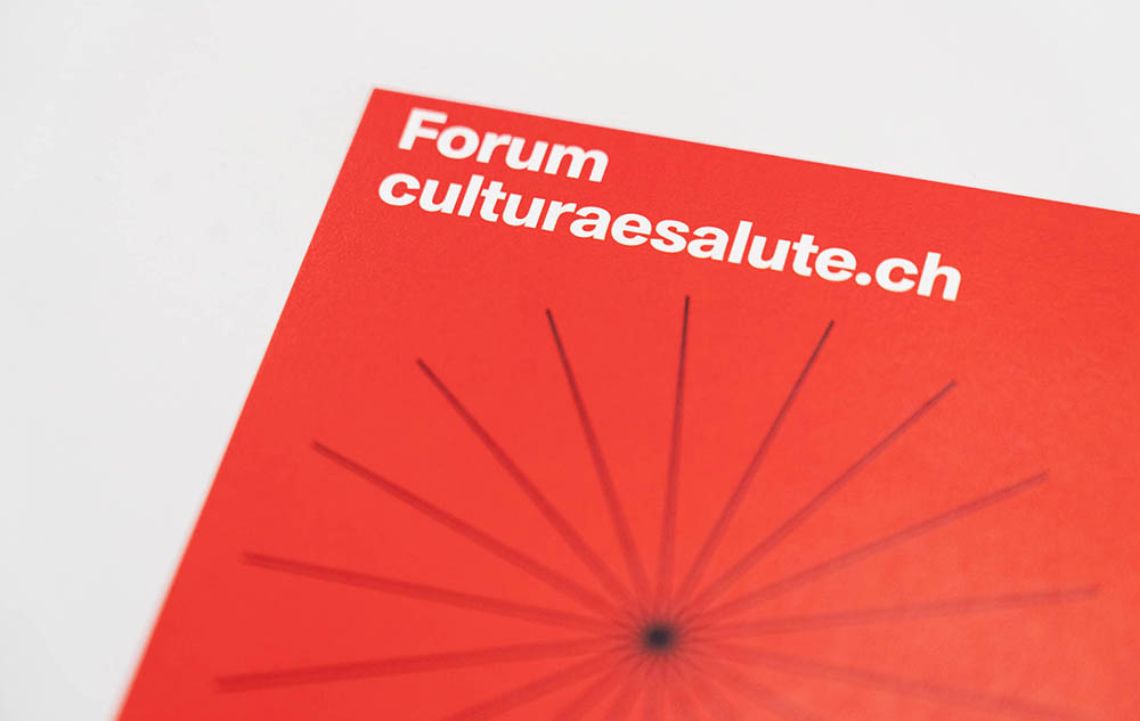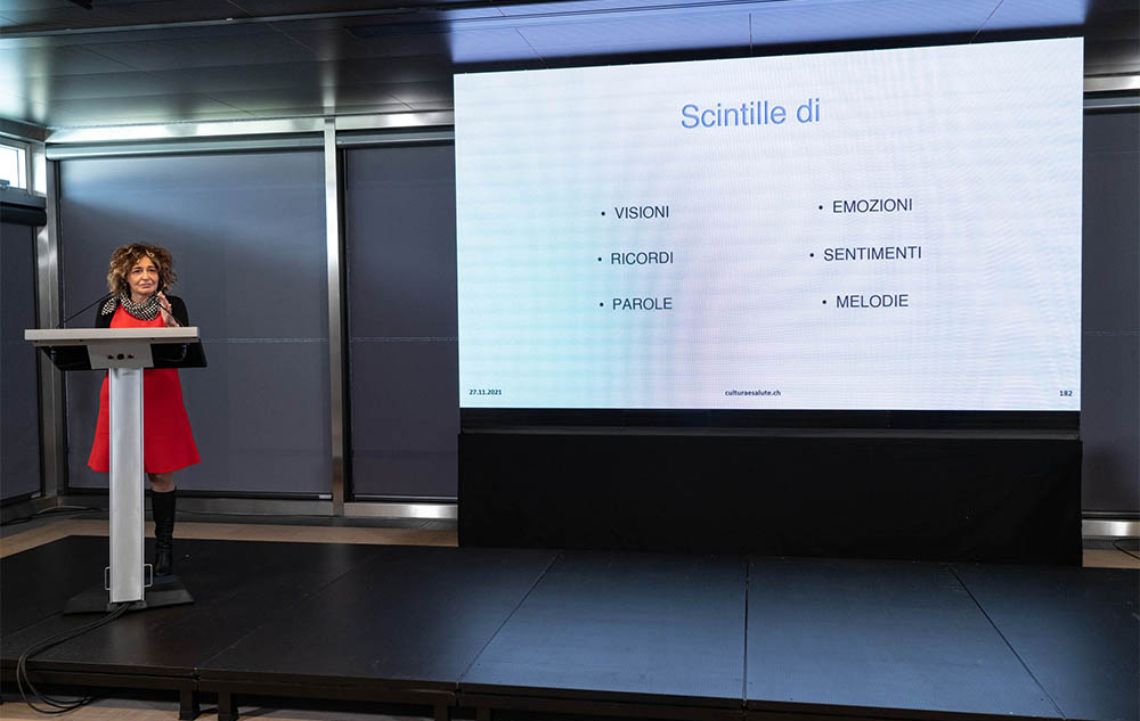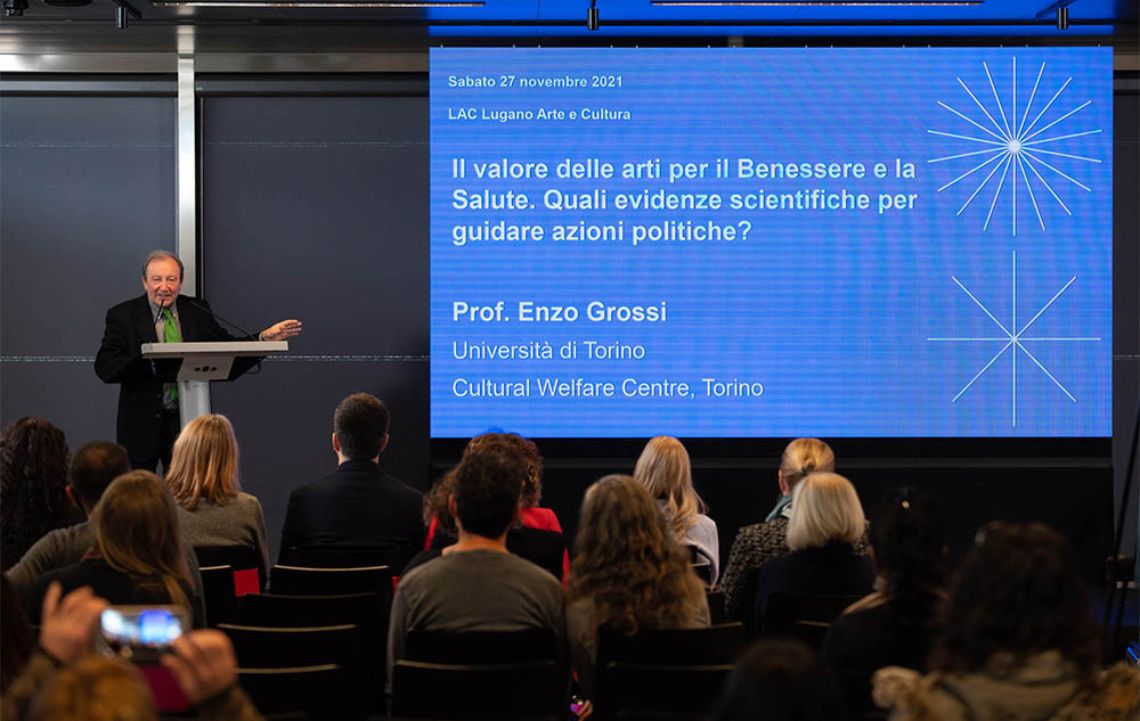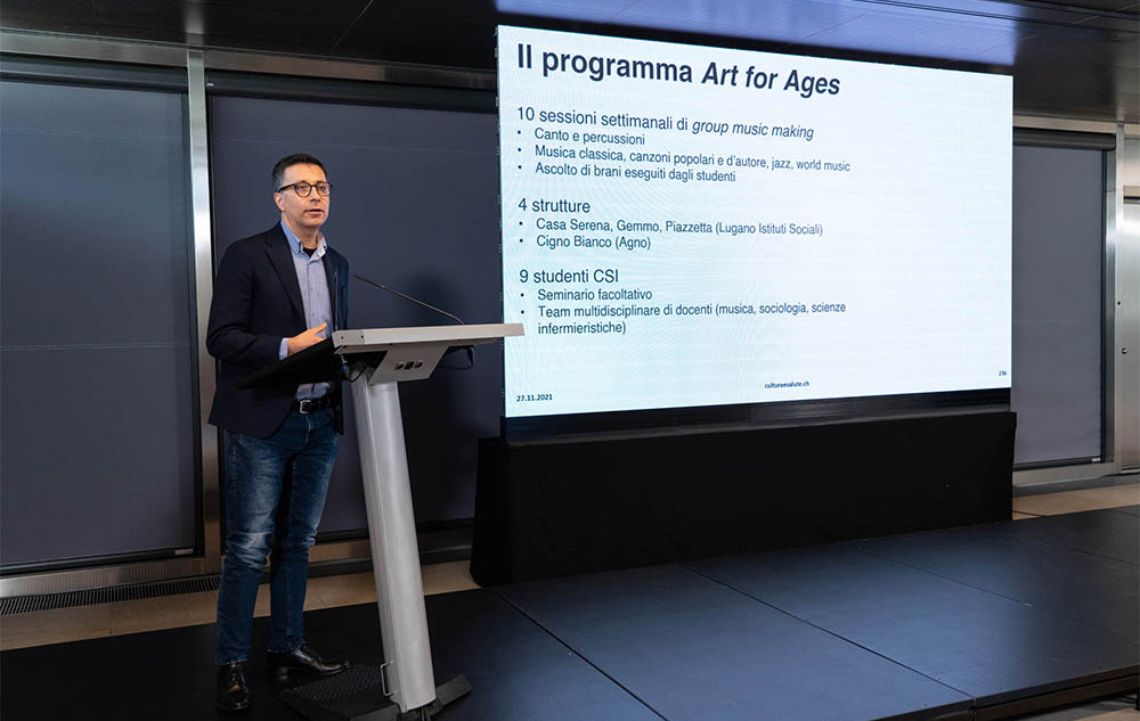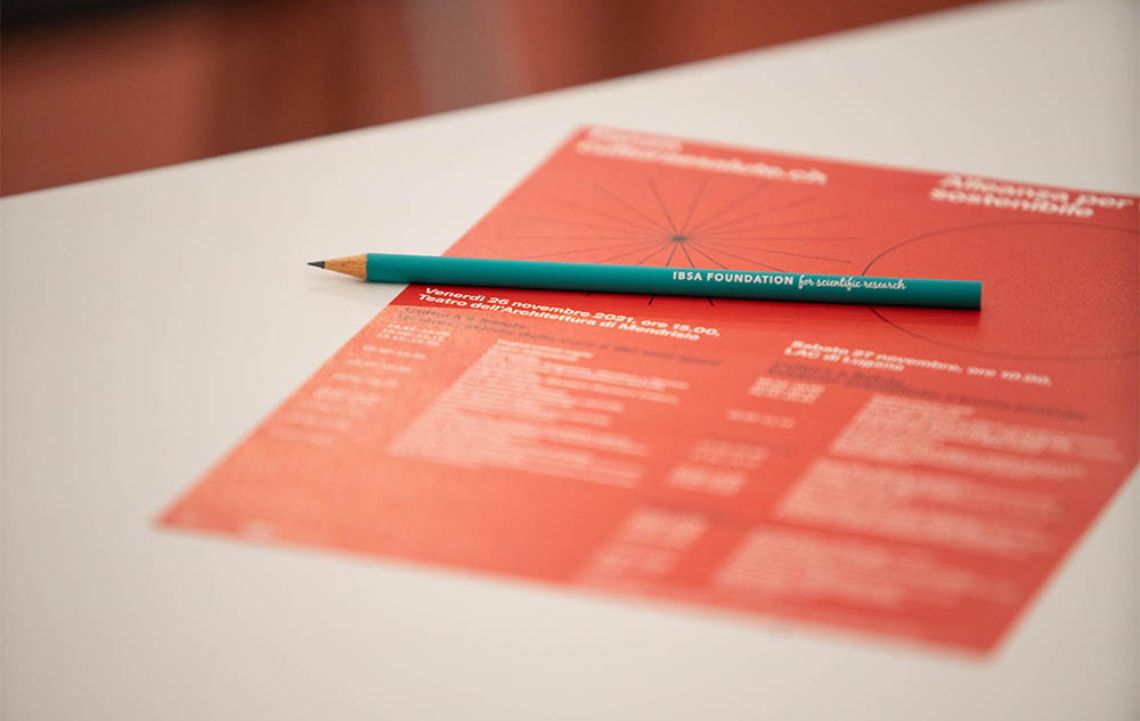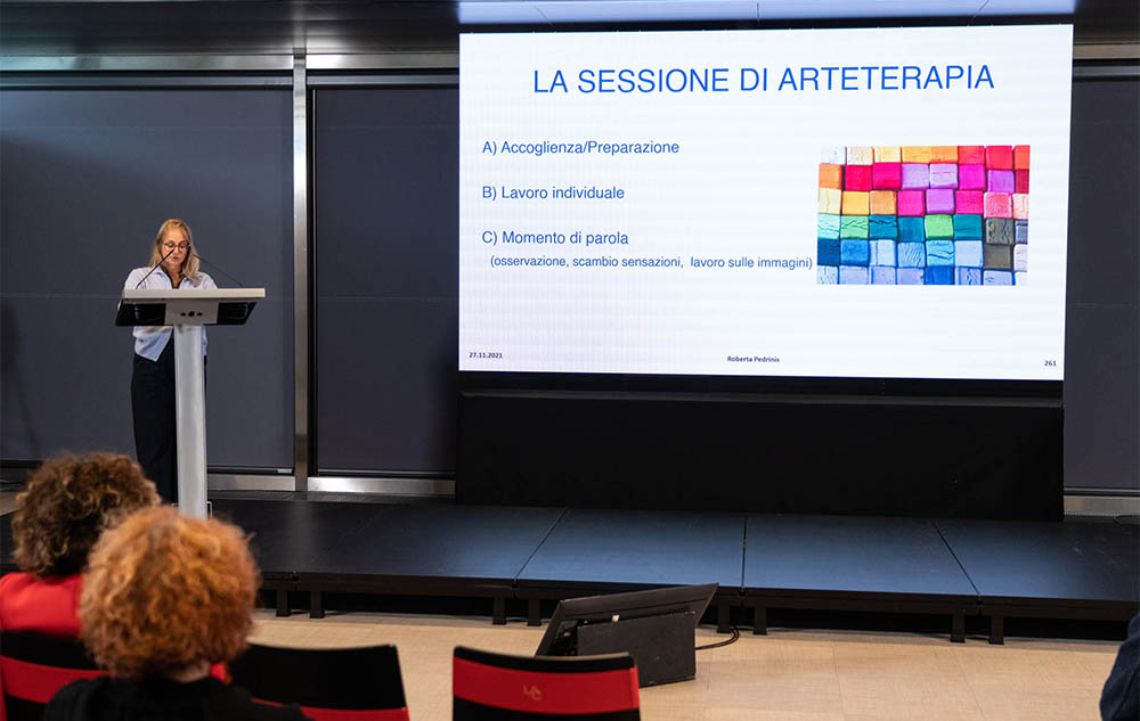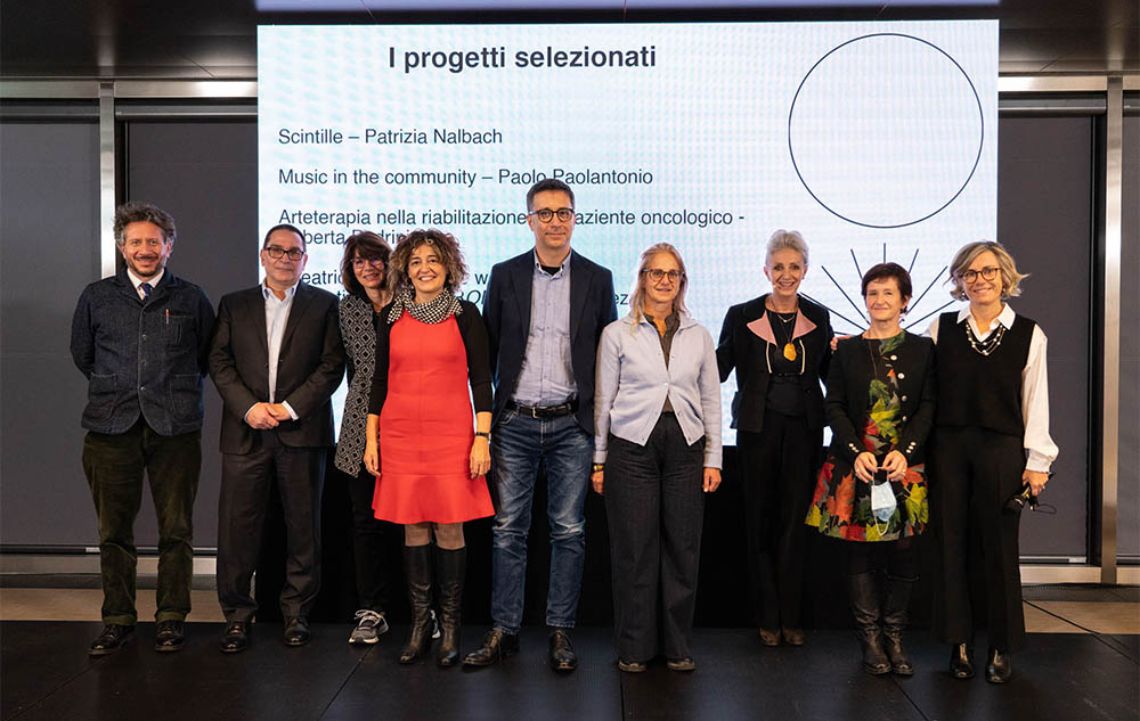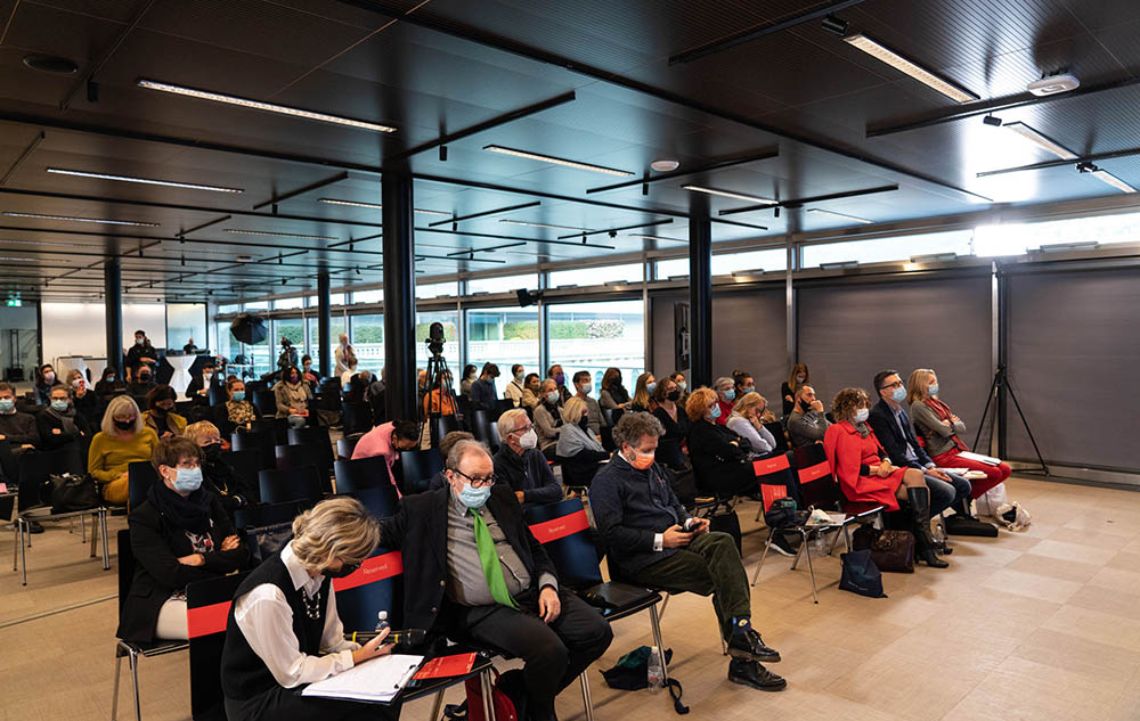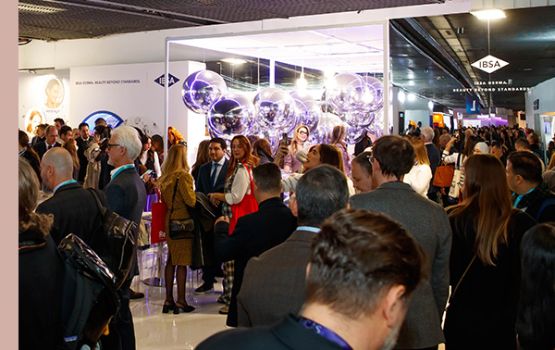Can art improve health? There is scientific evidence testifying that between culture and health there is a close correlation, that determines the inclusive well-being of the Person. Accessing effective therapies and, at the same time, feeding the mind with art and culture; being cared for in environments structured around the Person and her needs: these are the topics at the centre of the first Swiss Forum Alleanza per un futuro sostenibile (“Alliance for a sustainable future”), organised by IBSA Foundation for scientific research last November.
The humanisation of care as the main focus of the Forum "Alliance for a sustainable future"
THE HUMANISATION OF CARE AND ITS SPACES
For IBSA, social solidarity plays a fundamental role, and this is testified by IBSA Foundation’s long-standing commitment on several fronts. Indeed, to improve people’s quality of life, it is not enough to propose effective therapeutic solutions, engage in research and continue to innovate: for IBSA, well-being is closely related to the psychophysical and mental state, within a perspective of care humanisation.
As highlighted in the first WHO Report on the link between arts, health promotion and care pathways (2019), music, drawing, theatre and art forms in general take those who enjoy them in a state of engagement, abstraction and imagination that is good for the mind and body, with beneficial effects on patients, who are therefore able to better deal with their therapeutic pathways. Arts also have a positive impact on socialisation, help to prevent cognitive impairment and benefit not only people with health problems, but also their caregivers. Recognising the role of art in improving health and well-being should not remain a mere academic exercise, however, but become the basis for the implementation of policies that support artistic interventions in the health sector. It’s a complex and articulated topic, which involves different dimensions of the human body and soul: the individual psychological sphere (for example in the management of emotions), the physical one (since being exposed to art lowers the levels of stress related hormones and reinforces the immune response), as well as the social.
The places of care also play an important role, and it is increasingly necessary for architectural design to have as its objective the creation of an environment of health, based on the close correlation between the physical aspect of the man and the physical aspect of space. Well-being and space are therefore inseparable: an example is the rational and optimised use of light in hospitals, which has proven to improve the health of patients.
The concept of comfort also falls within the architectural and design context: when the individual follows their therapy in a comfortable environment, the course of the disease can benefit from a positive influence. Furthermore, the presence of works of art in a place marked by suffering and pain and where moments of fragility and vulnerability are experienced, such as a hospital, can also offer emotional support, since art has the ability to speak to a deep level of the human soul.
FIRST SWISS FORUM “ALLIANCE FOR A SUSTAINABLE FUTURE”
Conceived by IBSA Foundation in collaboration with the Culture Division of the City of Lugano, the Cultura e Salute (“Culture and Health”) project was created to promote initiatives and synergies between the world of culture and that of health. Precisely in this context, the first Swiss Forum “Alliance for a sustainable future” was held, at the end of 2021.
“We need to help raise awareness of the fact that art and culture are not only pleasant activities”, said Silvia Misiti, director of IBSA Foundation, “but that they can also make an important and scientifically proven contribution both in the field of disease prevention and health promotion, and in the management of the care and treatment of various conditions”.
The empirical results and the best practices conducted in Helsinki, Copenhagen and the United Kingdom were presented at the Forum, feeding the dialogue between speakers and industry experts. This was also an opportunity to award the five winning projects of the Call for Case studies, which invited to submit experiences and initiatives carried out in Switzerland with the support of innovative methodologies and on the basis of defined scientific outcomes. The Canton of Ticino responded with great enthusiasm, and three awarded projects are indeed from Ticino: Patrizia Nalbach with Scintille (“Sparks”), Paolo Paolantonio with Music in the community and Roberta Pedrinis with Arteterapia nella riabilitazione del paziente oncologico (“Art therapy in the rehabilitation of cancer patients”).
With the aim of promoting an effective integration between the world of culture and that of health, the Forum represented an excellent incentive to discuss the topic of the humanisation of care and its environments, and led to the launch of new, valid projects. In fact, these are topics that will continue to be the subject of study, analysis and research, and to which IBSA Foundation will continue to give voice, within the Cultura e Salute project.
All the full contents and videos of the two-day Forum are available on the IBSA Foundation website.

